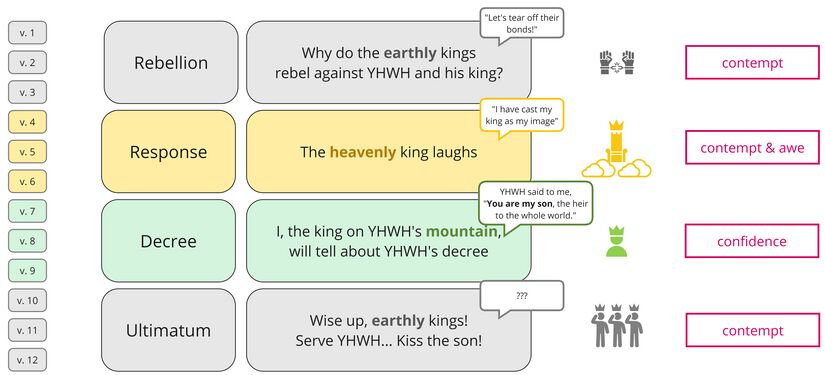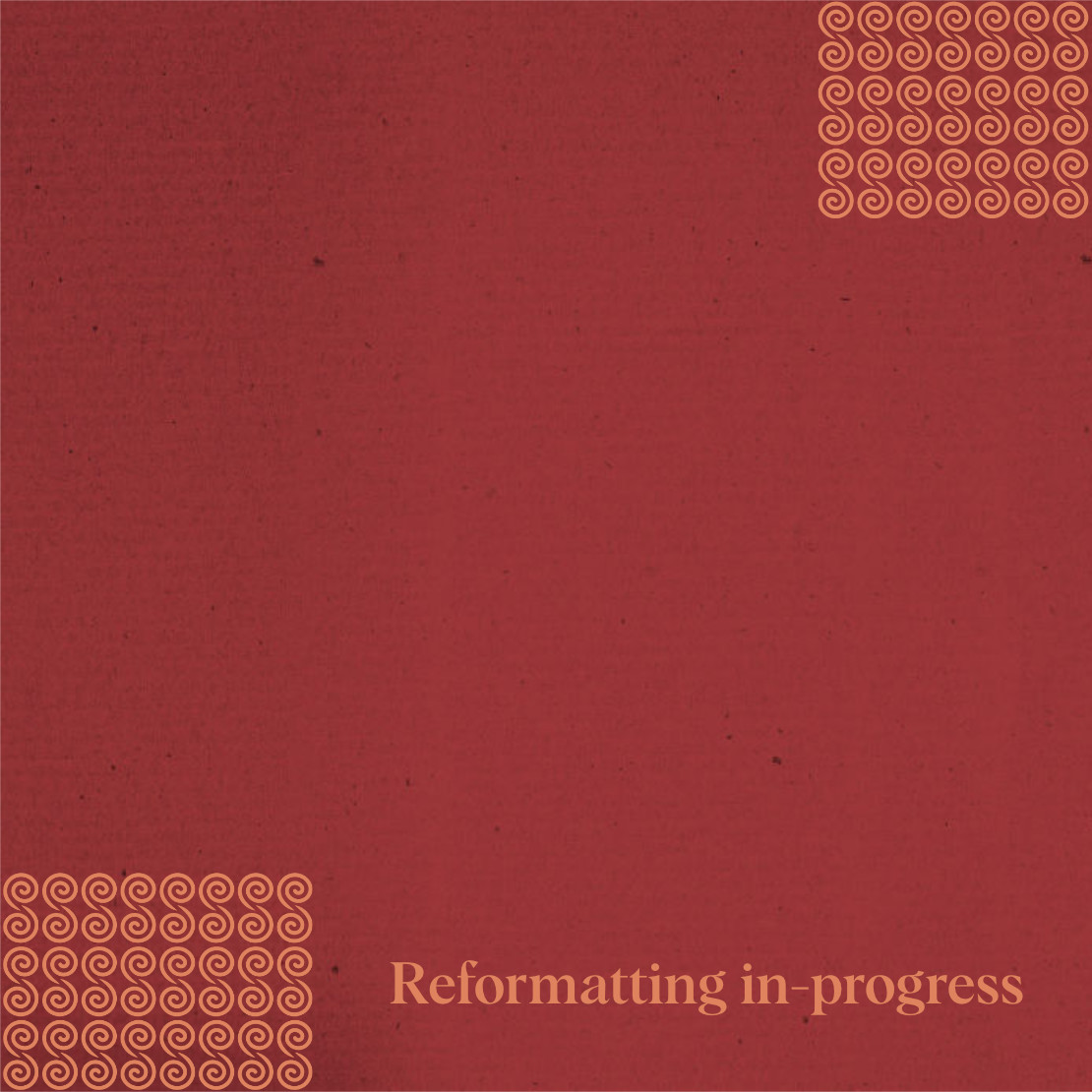Psalm 2 Overview
Welcome to the Overview of Psalm 2
This page will introduce and provide orientation to Psalm 2 as a whole. It includes the following sections:
Introduction to Psalm 2
Author:
Purpose:
- To call the rebellious kings of the earth to submit to YHWH and his king.
Content:
- Serve YHWH and submit to his king!
Message:
- YHWH's anointed king will rule the world.
Psalm 2 At-a-Glance
These sections divide the content of the psalm into digestible pieces , and are determined based on information from many of our layers, including Semantics, Poetics, and Discourse. The columns, left to right, contain: the verse numbers; the main title of the section; a brief summary of the content of that section (quote marks indicate the text is taken directly from the English text of the psalm (as per our Close-but-Clear translation); and an icon to visually represent and remember the content.

Background Orientation for Psalm 2
Following are the common-ground assumptionsCommon-ground assumptions include information shared by the speaker and hearers. In our analysis, we mainly use this category for Biblical/Ancient Near Eastern background. which are the most helpful for making sense of the psalm.
- YHWH made a covenant with David and his descendants (2 Sam 7:12-16; cf. Ps 89:4-5), saying, "I will raise up your offspring after you... and I will establish his kingdom... I will be his father, and he will be my son" (2 Sam 7:12-14).
- Sons inherit their fathers' property (cf. Num 27:7-11; 1 Kgs 21:3; Job 42:15).
- YHWH chose Zion, "the city of David" (2 Sam 5:7), as his holy mountain (Ps 132:13-14).
- A mountain is a place where heaven (cf. v. 4a) and earth (cf. v. 2a) meet and thus a place where people experience God's presence and power (see e.g., Gen 22; Exod 3:1-2; 19; cf. Matt 17:1-8).
- The king is the "image" of his god, the deity's earthly representative (cf. Gen 1:26-28; cf. Garr 2013, 136-165).
- Lesser kings (vassals) frequently rebelled against greater rulers (suzerains; Ringgren 1983, 91-95), especially when the greater kingdom experienced a change in kingship (Hilber 2009, 320). In the Neo-Assyrian period (early 10th–7th centuries BC), accounts of withstanding a rebellion were a regular part of inscriptions and palace decorations which served to confirm the divine appointment of a king (Radner 2016, 46, 54).
- A kiss is "a symbol of veneration both in the secular-political and in the cultic sphere" (TDOT; cf. 1 Sam 10:1; 1 Kgs 19:18).
Background Situation for Psalm 2
The background situation is the series of events leading up to the time in which the psalm is spoken. These are taken from the story triangle – whatever lies to the left of the star icon.


